- Learning time
- 30 minutes
- First play time
- 150 minutes
Catan
Designed by: Klaus Teuber
Catan – previously published as The Settlers of Catan – is a classic game of strategy, luck, and trading.
Players inhabit the island of Catan, which is rich in five different resources: wheat, sheep, brick, ore and lumber.
Your aims – use your resources to build roads, settlements and cities, which in turn give you more resources, and be the first to reach 10 victory points. At the start of each players turn dice are rolled, and if your settlements or cities are adjacent to a hexagon that produces the numbered resource, you get stuff – even when it’s not your turn.
The crux of the gameplay, and what has made Catan an enduring classic, is the trading: “I have wheat, I want brick – who wants to trade?” It’s intuitive and fun; and the dreaded robber, who moves every time a 7 is rolled, will take half your resources if you’ve been hoarding them – so trading is essential!
There is a fair amount of luck, as two dice are rolled on each turn to determine which areas give resources, and this can occasionally lead to one player feeling like they don’t have a chance; but Catan is the game that launched a thousand more, and certainly deserves a place in every family games cupboard.
Joe says
Catan is the first modern board game I played, after Sam introduced me to it many years ago. It's not a game either of us plays much these days, but it remains for me the (near) perfect introduction to modern board games, even now. There are many newer games that are easier to teach, and have smoother, less luck-dependent gameplay, but Catan has something; I'm almost tempted to say it has 'soul'. Although newcomers can be put off by the daunting looking rulebook, and peculiar hex-based 'board', once you start playing, it's instinctive and fun. Maybe it's the dice, maybe it's the little wooden houses, but it feels to me like I'm playing the game I always wished Monopoly was.
The guru's verdict
-
Take That!
Take That!
There are cards that allow you to steal resources from specific players, which could potentially upset sensitive souls.
-
Fidget Factor!
Fidget Factor!
All players are involved in trading on every turn, so downtime is rarely an issue. That said, if you end up with a shortage of cards for several turns, things can occasionally start to drag.
-
Brain Burn!
Brain Burn!
There’s no maths here, though it an be helpful to keep track of which resources players have, so a good memory is useful but not essential by any means.
-
Again Again!
Again Again!
The gameboard is made up of modular hexes, so once you’re familiar with the starting set-up, you can place them randomly for endless variation. There are also several expansions which add more players and gameplay options.

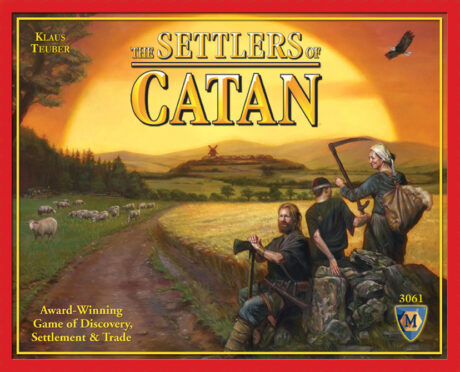
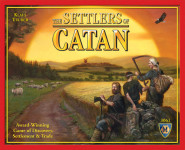
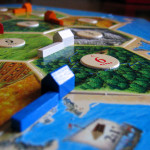
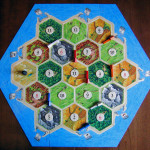
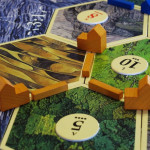
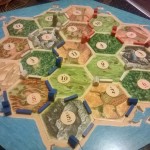
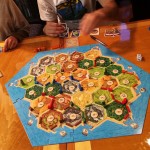

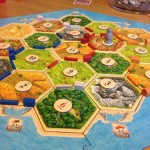
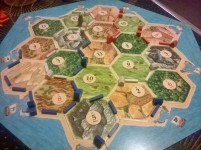
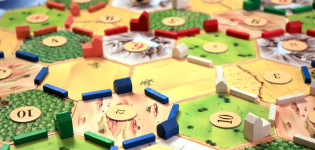
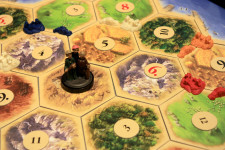
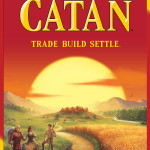


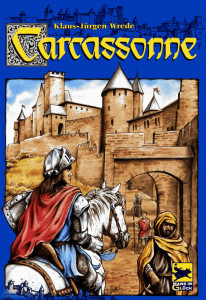
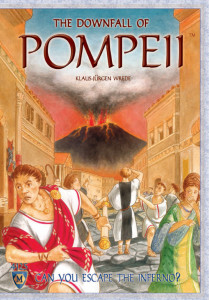
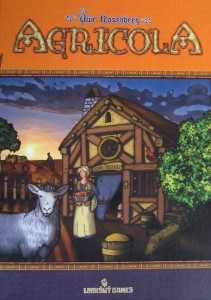
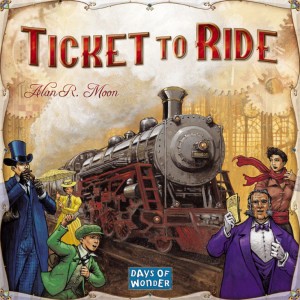
Sam says
Like Joe (below) I retain a soft spot for Catan as it's a great 'gateway' game; introducing potential players to the things that were missing from games when I was growing up. There's no combat, there's - to an extent - manageable luck (rather than just roll the dice and hope) everybody stays involved until the end of the game, you can trade with each other... The minor gripe is that it's possible to be left behind if your dice rolling is really flying in the face of averages. But on the whole it's a solid, intuitive game, and the fact it involves every player on every turn is great.